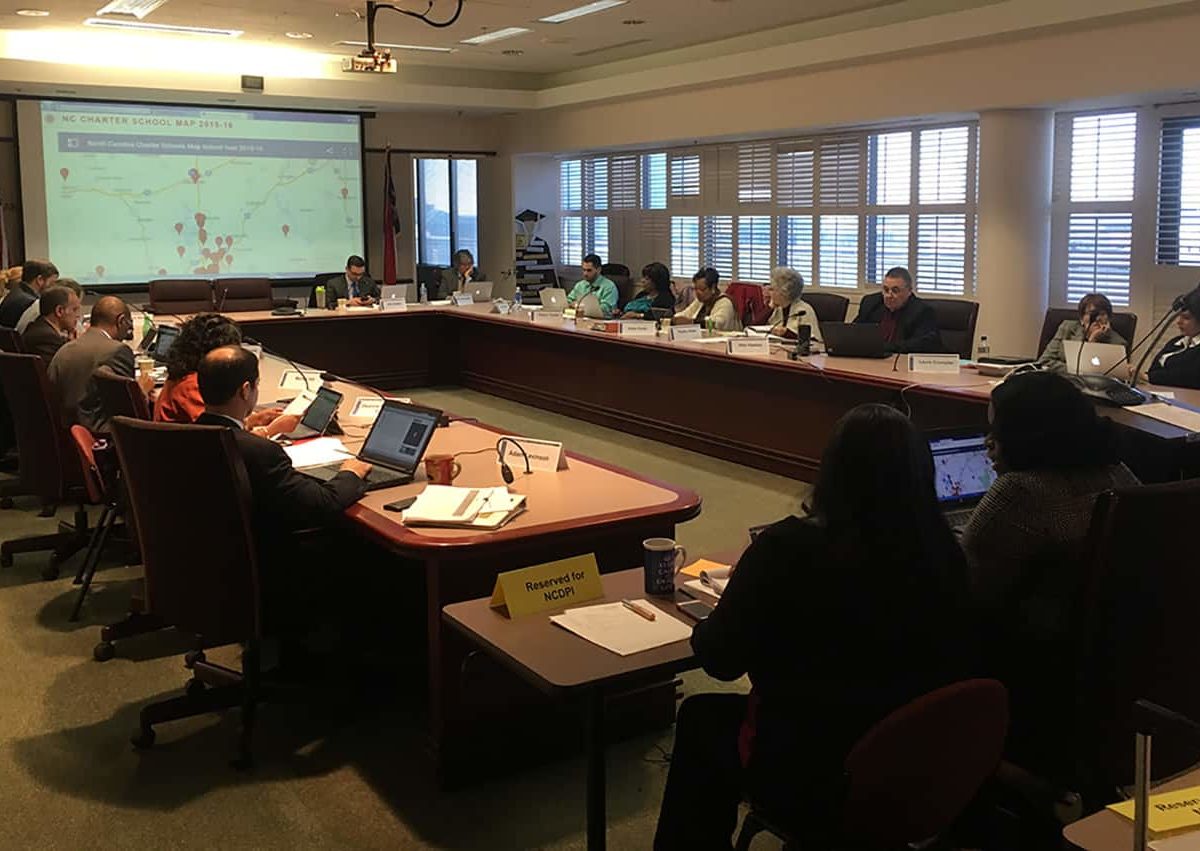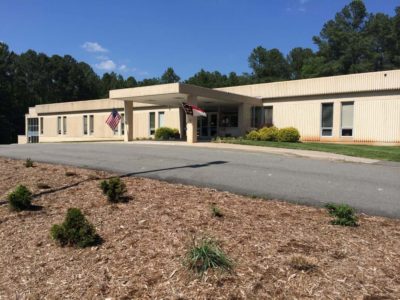

Members of the Charter School Advisory Board kicked off their March meeting with a lengthy discussion about how to uphold high standards while vetting new charter school applicants.
Batting around the idea of putting a formal quality rating on charter school applicants’ in-person interview before the oversight board, CSAB member Eric Sanchez said this selection process is getting too subjective and the board’s decisions seem to come down to how much they like who stands before them asking to open a charter school.
“If they go up there and they’re charismatic and know a little bit, then we give some latitude and we say go,” said Sanchez. “Even if they’re not … being clear on their education plan or other parts of their application.”
“We’ve had a comment or two where they said ninety percent of the decision seems to be the interview,” said Office of Charter Schools’ interim director Adam Levinson. “Is that right? Is that the process you want?”
CSAB’s chair, Alex Quigley, seemed to support the idea of somehow quantifying the outcomes of interviews so that they’re not the key decider in whether or not a group gets to open a charter school.
“It also creates a common language,” said Quigley of perhaps creating a rubric for the interview. “We lack a common language sometimes to describe what we’re seeing or to pinpoint the strengths and weaknesses [of an applicant.]”
OCS staff prefaced this discussion with some key data points. Since 2014, seven charter schools have closed – and five of those were within their first year of operation.
And perhaps most remarkable? For five of those seven schools that closed, significant red flags were contained within the charter school application and flagged by external reviewers—but the schools were green lighted to open anyway.
House Bill 334, passed last year, also enabled changes to the vetting procedure for charter applications beginning with this year’s cycle, making it possible that weaker applications could get farther along in the process and come before the board. It’s important to note that the threshold is currently fairly low for an application to pass the first round, highlighted OCS’ Deanna Townsend-Smith.
“That pass/fail rating [that external evaluators use in the first round of vetting] is not really equating to the quality that you are looking for,” said Townsend-Smith.
Sanchez said that over the past three years, he has seen the vetting process become weaker.
“Every year has lost some depth,” said Sanchez, who added that over time, what’s contained in the charter school application has become increasingly overshadowed by charter leaders’ performances in the in-person interviews.
“We keep discussing the interview,” said Sanchez of the board’s deliberations, “but we never actually get into any depth about the application whatsoever.”
The charter school board decided to table the idea of rating interviews for now, deciding instead to appoint a subcommittee to come up with a clear recommendation for how much weight interviews should be given when deciding if a group gets the go ahead to open a charter school.
Members also voted to make changes to the charter school application and processes [see here for details] and they voted to ask the State Board of Education to lobby the General Assembly for special waivers related to charter school expansion.
These waivers would allow charter schools to increase their enrollment by more than 20 percent, even if they fail to meet the following five criteria currently in law:
- The actual enrollment of the charter school is within ten percent (10%) of its maximum authorized enrollment.
- The charter school has commitments for ninety percent (90%) of the requested maximum growth.
- The charter school is not currently identified as low-performing.
- The charter school meets generally accepted standards of fiscal management.
- The charter school is, at the time of the request for the enrollment increase, substantially in compliance with State law, federal law, the charter school’s own bylaws, and the provisions set forth in its charter granted by the State Board.
Noncompliant charters brought in for questioning
CSAB heard this week from the leaders of seven charter schools that are on shaky ground—and most of those schools are experiencing financial troubles. Four of the seven schools are new, having opened in 2013 or later.
[Click here for a detailed list of charter schools currently in “noncompliance” with the state.]The board decided to take no action against Guilford Preparatory Academy, whose charter is up for renewal this year. The school experienced significant financial problems in 2013 and appears to have mostly recovered from them, although not quite up to criteria laid out by the State Board of Education. The final call on Guilford Prep’s future should be sorted out through the renewal process later this year.
The fate of two other schools – Kinston’s Children’s Village Academy and Success Institute Charter School in Statesville — will also be determined through the renewal process later this year, CSAB members decided. Both schools are experiencing financial troubles and some other issues, but seem to be making improvements.
Charlotte Choice Charter and Z.E.C.A. School of the Arts and Technology will have to appear before CSAB once again next month with clear plans for rectifying their problems.
Charlotte Choice Charter School is experiencing high student withdrawal rates, high teacher turnover, instability in its leadership ranks and had its tax-exempt status revoked for failing to file their tax forms in a timely manner. They’ll need to come up with a clear plan for stabilizing their leadership and getting their tax-exempt status reinstated.
Z.E.C.A., located in Jacksonville, is experiencing a significant financial crisis that prompted CSAB chair Quigley to call their situation “a perfect storm” after considering the school’s very poor test scores and low student enrollment numbers along with their financial issues. Next month Z.E.C.A. will need to have in hand a five point action plan and budget documents that are more clear.
CSAB decided to have Invest Collegiate, located in Charlotte, come back in the fall for further review. The school, which just opened in 2013, is experiencing significant financial problems and as of their 2015 financial audit had a negative fund balance of -$587,956. Their money woes are largely attributed to entering into a very costly lease agreement for their building, on which they currently spend $96,000 per month.
CSAB chair Alex Quigley noted that the former board chair for Invest Collegiate, who played a role in deciding to enter into a very expensive facility contract, will now head up two new charter schools in the state beginning in 2017, thanks to CSAB’s actions last month. At the time, they didn’t realize the connection between the proposed charter schools and Invest Collegiate.
Board gives the thumbs up to another NHA managed charter applicant; thumbs down to two other applicants
CSAB vetted three charter school applications this month and approved just one for a 2017 opening—National Heritage Academies-managed Rolesville Charter School.
NHA, a national charter management organization, already operates eight charter schools in North Carolina and has been authorized to open three more this fall. This will be the company’s 12th charter school in the state.
Rolesville Charter will model itself after Greensboro Academy, according to their application. The chair of Greensboro’s board, Alan Hawkes, is also a CSAB member. Hawkes did not recuse himself from discussion or voting on the school, although fellow CSAB member Hilda Parler, who sits on the board of another NHA-managed charter, did recuse herself.
CSAB’s Eric Sanchez seemed concerned with Rolesville’s plan to ensure students who won the lottery to enroll and needed transportation would actually get it, and he was disappointed by the school leaders’ lack of attention to diversity.
Based on their location, the school will likely have to educate a student population that is more economically disadvantaged than the student populations at NHA’s other schools, CSAB noted. Members asked how school leaders planned to adjust their strategies to serve students with greater needs and their response was that their instructional model lends itself to any kind of student population and that they’ll also employ more teacher aides if necessary.
The board rejected applications for Forsyth Preparatory Academy and Francis Classical School. Forsyth Prep’s education plan was found to be lacking in clarity, among other problems.
Board members for Francis Classical did not show up for their in-person interview, but a representative for them did appear and cited a legal problem with their application as reason for their failure to appear. It appeared that Francis Classical’s board didn’t expect the process to move forward this week, but CSAB pressed on without them, ultimately denying their bid to open a charter school in Mecklenburg County due to to problems with their education plan, financials, and enrollment targets.


